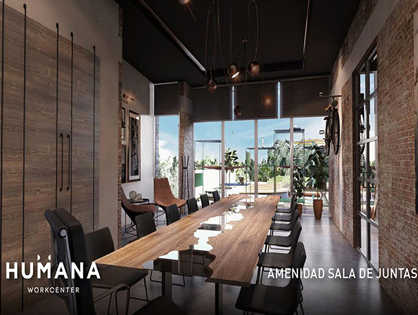5 Advantages Commercial Real Estate Has Over Residential Real Estate
There are some major advantages to investing in commercial real estate. We
will discuss the top five in this article. Before jumping into the specifics,
let’s discuss some of the differences in these two investment options.
When compared to residential property, a commercial space has less government
regulation. That’s because leasing a space to a business is less complex than
providing a home for people to live in. Also, landlords of a residential property
face the challenge of turnover more often than a commercial landlord. Tenants might
not renew and leave because of a job change, growing family, or wanting to downsize.
Whereas, in a commercial space, the tenant is establishing their business which can
take time. And once established, there aren’t as many reasons to move.

Alright, after a bit of background on these two real estate investment strategies, let’s discuss what the five advantages are.
1. Longer Lease Term
Generally speaking, residential leases last for one year. After that, the tenant usually has the option to renew for one more year or opt for month to month. This implies that tenant turnover can be high with a residential lease. Conversely, commercial leases tend to be much longer. The tenant desires a longer lease to lock in overhead expenses for a greater period of time. Even more, if the tenant has a retail business, staying in the same location is very important to them and their customers. As such, the landlord benefits from these longer leases. Finally, banks are more likely to consider you for a refinance when you are a commercial landlord because of these longer leases.2. Profitable Rent and CAM Charges
When it comes to rent charges on residential properties it’s pretty simple. The amount you charge for rent each month is the amount of your rental income. Commercial leases, on the other hand, aren’t typically like that. If a tenant wants to rent your commercial space for their brand new business, you can offer them a “ramp up” period. That means they’ll pay a reduced rent or not pay rent at all during this period.Going back to residential leases. Some of them receive protection from rent control laws. But, that isn’t the case for commercial leases. So, rent on a commercial lease usually goes up a bit over time. If the tenant has established itself, they could be willing to pay more rent to keep their space. Furthermore, commercial leases can include a ratchet clause. The clause indicates that rent charges go up every year based upon an agreed percentage.
Commercial tenants also pay more than rent. Tenants often pay a portion of the utilities, and in particular, the water bill. Depending on the location, tenants even pay Common Area Maintenance (CAM) charges. These fees cover building costs such as, cleaning the bathrooms, removing trash, repaving the parking lot, paying for security personnel and more.
3. Tenant Improvements
Because residential properties are generally move-in-ready, the topic of tenant improvements doesn’t apply to residential leases. They do however, apply to commercial leases and can be a big advantage for the landlord. Since the tenant is running their business inside the commercial space, they tailor the space according to their needs. The work done by the tenant upon move in is called the “fit out.”Work that falls under the description of a fit out can include everything from painting to to full renovations. The number of improvements generally depend on the type of business the tenant runs. It’s common that the tenant pays for all the work that gets done. In cases where the landlord covers some of these costs, it’s then reflected in the rent price.
The improvements the tenant makes to the space represents their investment. By spending a good sum of money to customize their space, the incentive to stay longer and recoup their investment is higher.
4. Increased Collateral
For a residential lease, collateral is the tenant’s security deposit. At most, a landlord collects a deposit equal to one month’s rent. And in some cases they can ask for last month’s rent upfront. In the case of an eviction, the landlord is on the hook for damages to the apartment and potential back rent. And in many cases the deposit cannot cover these losses.On the flip side, commercial leases are much different. The landlord is able to negotiate the deposit with the tenant. Often, the landlord gets two or three month’s rent as collateral.
As a commercial landlord, you can get more collateral than just the security deposit alone. In the case of a fit out, you can add a clause in the lease saying all improvements belong to you if the tenant goes into default. Even more, you can request the tenant to sign a personal guarantee. That means they’re personally liable for any damages they caused or for lost rents. This represents one of the biggest advantages for commercial real estate over residential. Because many commercial tenants are LLCs, and they can potentially go bankrupt if trouble emerges.
Lastly, a commercial lease can include an “acceleration” clause. So, assume your tenant wants to break their 5-year lease in the first year. Because of the acceleration clause all future rents will become due. Since that is a large sum of money, the tenant is incentivized to keep their lease rather than face this penalty. Even more so in the case of a signed personal guarantee.
5. Exclusivity
Exclusivity sets limits on both the landlord and the tenant. It limits who the landlord can lease to and limits the locations the tenant can move to if they choose to vacate. For instance, if one of your tenant’s runs an Indian restaurant, you cannot rent another space in your complex to an Indian restaurant. The exclusivity clause prohibits it. This clause benefits the tenant by limiting their competition, which can be critical when they’re located in a strip center or shopping mall. From the landlord’s perspective, they care about the tenant’s success, and one way of doing that is to limit similar businesses from moving in. Additionally, exclusivity prevents a former tenant from moving their business to a location near their former landlord’s building.Final Thoughts
Even though this article covers the advantages of commercial real estate over residential, many successful real estate investors invest in both. It helps to broaden their portfolio, and can enhance yours as well.Ryan Gravel

Ryan Gravel is an American real estate broker and developer. He began his career at a young
age working for his family owned construction company.
After graduating college at the University of Central Florida with a degree in business,
Ryan set out to find untapped prolific markets around the world. His search landed him in
Playa del Carmen, Mexico where he founded Virgin Realty Mexico and co-founded the Saatal
Development Group one of the fastest growing development companies in the Riviera Maya.
With extensive market knowledge, professionalism, etiquette, innovation and integrity Ryan
is known as one of the most highly respected real estate advisors in the region.



